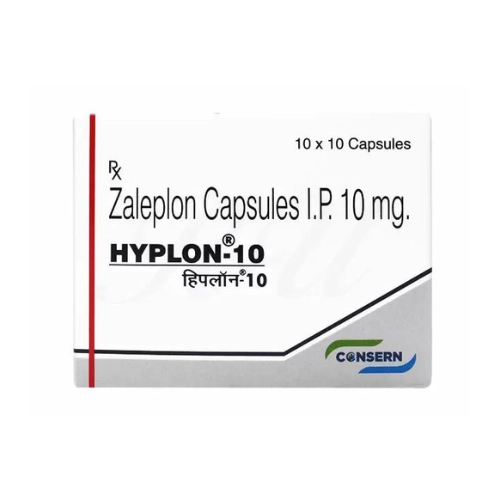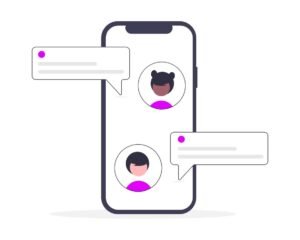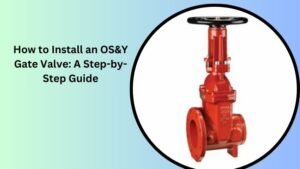Insomnia is a common sleep disorder affecting millions of people worldwide, characterized by difficulty falling asleep, staying asleep, or experiencing non-restorative sleep. For those struggling to get a good night’s rest, medications like Zaleplon 10 mg offer a potential solution. This article explores how Zaleplon works, its benefits, usage, side effects, and comparisons to other treatments, ultimately assessing its effectiveness in managing insomnia.
What is Zaleplon 10 mg?
Zaleplon is a sedative-hypnotic medication used to treat insomnia, particularly short-term sleep problems. It belongs to a class of drugs called non-benzodiazepine hypnotics, commonly referred to as “Z-drugs,” which are known for their fast-acting properties and fewer side effects compared to traditional benzodiazepines. Zaleplon 10 mg is primarily prescribed for individuals who have trouble falling asleep but may not be as effective for those who struggle with staying asleep.
How Does Zaleplon 10 mg Work?
Zaleplon 10mg works by affecting the brain’s GABA (gamma-aminobutyric acid) receptors. GABA is a neurotransmitter that helps reduce brain activity, promoting a calming effect and inducing sleep. Zaleplon enhances the effect of GABA, making it easier for the body to relax and fall asleep.
One of Zaleplon’s key features is its rapid onset of action. After taking the medication, it typically begins working within 15 to 30 minutes, making it effective for individuals who experience difficulty falling asleep. Additionally, its short half-life (about one hour) means that it is quickly eliminated from the body, reducing the risk of next-day drowsiness or a “hangover” effect that other sleep medications may cause.
The Effectiveness of Zaleplon 10 mg for Insomnia
Zaleplon is considered effective for treating short-term insomnia, especially in individuals who need assistance falling asleep but not necessarily staying asleep throughout the night. Clinical studies have shown that Zaleplon significantly reduces sleep latency (the time it takes to fall asleep) without affecting sleep architecture or causing rebound insomnia once discontinued. This makes it an attractive option for people who need short-term relief from sleep disturbances caused by stress, jet lag, or temporary lifestyle changes.
For individuals with chronic insomnia, Zaleplon may not be as beneficial due to its short duration of action. While it can help someone fall asleep quickly, it does not prevent middle-of-the-night awakenings or early morning wakefulness, which are common symptoms of chronic insomnia. For these cases, medications with a longer duration of action, such as zolpidem (Ambien) or eszopiclone (Lunesta), maybe more suitable.
Benefits of Zaleplon 10 mg
There are several advantages to using Zaleplon 10 mg capsule for the treatment of insomnia:
Rapid Sleep Induction: Zaleplon works quickly, helping individuals fall asleep within minutes. This makes it ideal for people who have difficulty falling asleep but do not experience frequent nighttime awakenings.
Minimal Next-Day Effects: Due to its short half-life, Zaleplon is cleared from the body quickly, reducing the risk of next-day drowsiness or cognitive impairment. This is beneficial for individuals who need to be alert and functional the next day.
Low Risk of Dependence: While all sedative-hypnotics carry some risk of dependence, Zaleplon has been shown to have a lower potential for addiction compared to traditional benzodiazepines. This makes it a safer option for short-term use.
Fewer Cognitive Side Effects: Studies suggest that Zaleplon has fewer cognitive side effects, such as memory impairment or confusion, compared to some other sleep medications. This is particularly important for people who may be sensitive to the cognitive effects of sleep aids.
Tailored for Short-Term Use: Zaleplon is most effective when used to address transient insomnia, such as sleep problems due to stress or travel. It is designed for short-term treatment, typically prescribed for 7 to 10 days.
Proper Usage of Zaleplon 10 mg
To maximize the effectiveness of Zaleplon 10 mg, it should be taken as directed by a healthcare provider. Here are some general guidelines for using Zaleplon safely:
Take Right Before Bed: Zaleplon should be taken immediately before going to bed, as it works quickly. Avoid taking it if you do not have at least 4 hours of sleep, as this can result in grogginess the following day.
Do Not Take With Food: Zaleplon works best when taken on an empty stomach. Taking it with food can slow down its absorption, making it less effective.
Avoid Alcohol: Alcohol can intensify the sedative effects of Zaleplon, increasing the risk of dangerous side effects such as dizziness, drowsiness, and impaired coordination. It is important to avoid consuming alcohol while taking Zaleplon.
Short-Term Use: Zaleplon is intended for short-term use. Prolonged use can lead to tolerance, where the body becomes less responsive to the medication, and dependence, where the individual may struggle to sleep without it.
Side Effects of Zaleplon 10 mg
Like all medications, Zaleplon 10 mg may cause side effects. Most people tolerate it well, but some may experience the following:
Dizziness: One of the most common side effects is dizziness, which may occur as the body adjusts to the medication.
Drowsiness: Although Zaleplon is less likely to cause next-day drowsiness, some individuals may still feel groggy if they do not get enough sleep after taking it.
Headache: Some users report headaches as a side effect of Zaleplon use.
Memory Problems: In rare cases, Zaleplon may cause temporary memory impairment, especially if the person is woken up before the drug has completely worn off.
Unusual Behaviors: Some individuals have reported engaging in activities like sleepwalking, driving, or eating while not fully awake, with no memory of these events.
If side effects persist or worsen, it’s important to consult a healthcare provider.
Zaleplon 10 mg vs. Other Sleep Medications
When comparing Zaleplon 10 mg to other popular sleep medications like zolpidem (Ambien) and eszopiclone (Lunesta), there are notable differences:
Zaleplon: Works quickly and is effective for falling asleep but has a very short half-life, which limits its effectiveness in maintaining sleep. It is less likely to cause next-day drowsiness, making it ideal for people who need to wake up early and feel refreshed.
Zolpidem (Ambien): Zolpidem has a longer duration of action compared to Zaleplon, making it effective for both falling and staying asleep. However, it carries a higher risk of next-day impairment and unusual sleep-related behaviors.
Eszopiclone (Lunesta): Eszopiclone has a longer half-life and can help with both sleep initiation and maintenance. However, it is more likely to cause a metallic taste in the mouth and next-day drowsiness.
Each of these medications has its own set of benefits and risks, and the choice between them should depend on the specific sleep issues the individual is experiencing.
Is Zaleplon 10 mg the Right Choice for You?
Zaleplon 10 mg is an effective and well-tolerated option for short-term insomnia relief, particularly for individuals who have trouble falling asleep. Its rapid onset of action, low risk of next-day drowsiness, and minimal risk of dependence make it an attractive option for many. However, it may not be the best choice for those who struggle with staying asleep throughout the night or experience frequent awakenings.
Before starting any sleep medication, it’s essential to discuss your symptoms and health history with a healthcare provider to determine whether Zaleplon 10 mg is the right treatment for your insomnia. As with all medications, Zaleplon should be used responsibly and only as directed to avoid unwanted side effects and potential dependence.
Conclusion
Zaleplon 10 mg offers a fast and effective solution for individuals struggling with short-term insomnia. By promoting rapid sleep onset and minimizing next-day impairment, can help people get the rest they need without sacrificing alertness the next morning. However, it is best suited for short-term use and is not the ideal treatment for those with chronic sleep issues. As always, consult with a healthcare provider before starting any medication for insomnia to ensure it is the best choice for your specific needs.















